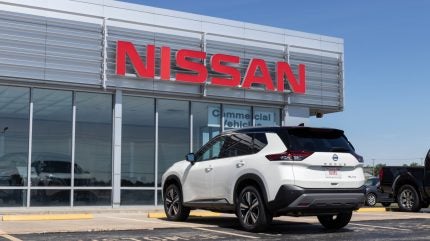
Japan-based Nissan Motor plans to reduce vehicle production at its Kyushu plant by a further 1,400 units next week, reported Reuters, citing unnamed sources.
The move comes as semiconductor supply problems linked to Nexperia continue to weigh on its Japanese operations.

Discover B2B Marketing That Performs
Combine business intelligence and editorial excellence to reach engaged professionals across 36 leading media platforms.
The latest adjustment follows a cut of about 900 vehicles at the same facility earlier this month.
The latest round of reductions will affect models including the Serena minivan and the Rogue sport-utility vehicle (SUV), marketed domestically as the X-Trail.
The individual, who requested anonymity because the plans have not been made public, added that production at Kyushu had returned to normal on 17 November but would be scaled back again from 24 November.
The plans could still be revised if Nissan is able to secure alternative semiconductor supplies or otherwise resolve the disruption.
Nissan Motor spokesperson said: “We are taking necessary production adjustments to manage associated risks.”
Additionally, Nissan is set to build fewer Note compact cars than originally scheduled at its Oppama plant near Tokyo for a second consecutive week.
Production schedules for December at both Kyushu and Oppama remain under consideration.
The latest announcements come against a backdrop of weaker domestic demand. Nissan’s retail sales in Japan fell 16.5% in the first half of its current financial year.
The automaker also announced last month it anticipates posting an operating loss of 275bn yen ($1.78bn) for the financial year ending March, citing US tariffs, semiconductor shortages and other supply-related challenges.
The chip shortage affecting Nissan is part of a wider industry issue involving Nexperia.
Several vehicle manufacturers worldwide have had to curtail or pause output due to supply interruptions, though some have been able to identify alternative sources.
Honda recently said it would move back towards normal production at a plant in North America after securing sufficient chip inventories.
Nexperia, which has its headquarters in the Netherlands, is still arranging different supply routes while a disagreement between Dutch and Chinese authorities remains unresolved.
Earlier this year, the Dutch government placed Nexperia under state control on national security grounds. China subsequently imposed a temporary export embargo on shipments from Nexperia’s Chinese facility.






